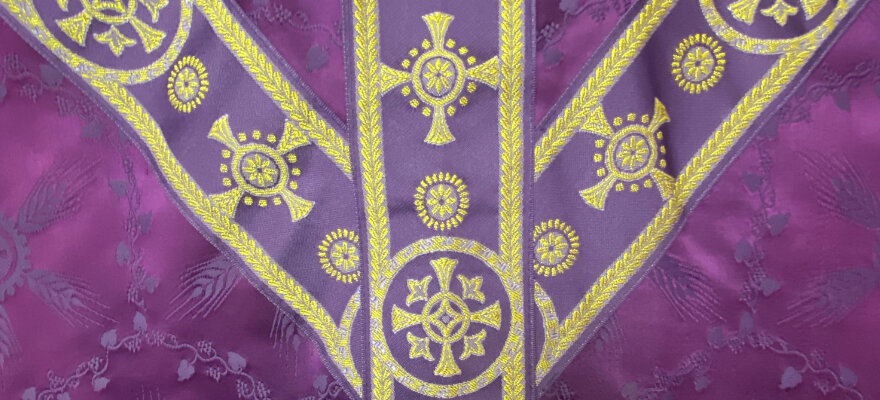
Beyond the Drama: A Reflection on the Fifth Week of Lent
(Based on recollection talks given by Rev. Fr. Pachomius Ma. San Juan, OSB)
As we enter the Fifth Week of Lent and draw near to Holy Week, it’s tempting to view this sacred season only through its dramatic rituals and rich pageantry. The incense, the veiled crosses, the solemn hymns—they stir something deep within us. But Lent is not just a reenactment of sorrowful events or an emotional journey. At its heart, Lent is the quiet, persistent story of God reclaiming us—not through spectacle, but by becoming one of us, walking beside us, and embracing the cross for our sake.
Not condemnation but redemption
This week, the Church turns our gaze more intentionally to the crucified Christ. Not merely as a symbol of suffering, but as the clearest revelation of love that bears the weight of all sin. The cross is not an ornament or backdrop—it is the very center of our faith. As St. Paul reminds us, without the Resurrection, our faith is in vain. But before Resurrection, there is the Cross. And that twisted, broken figure upon it is not a sign of defeat, but a doorway to life: to redemption, to grace, and to the relentless mercy of God.

Lent is not about shame or guilt—it’s about coming to grips with how deeply we need those outstretched arms. Arms that do not condemn, but embrace. Whether the cross provokes tears or quiet reflection, what matters most is that we respond. That we return. That we allow ourselves to be changed.
Mercy greater than our sin
No one is beyond mercy. To believe otherwise is to suggest that our sin outweighs God’s love—a claim the Gospel consistently refutes. Even if we confess the same struggles week after week, God does not grow tired of offering forgiveness. A seminarian once spoke of the embarrassment of bringing the same list of sins to the confessional time and again, until he came to realize: God’s focus isn’t on our repetition, but on His unwavering mercy.

The Prodigal Son reminds us: God doesn’t give based on what we deserve—He gives from the fullness of His love. Our return might feel late, but grace is not withheld. Lent isn’t about waiting until we’re “holy enough” to turn back. It’s about returning now, just as we are.
We all carry blindness—pride, resentment, fear—that clouds our vision of Christ. And yet Lent invites us to walk forward anyway. Like the Samaritan woman or the man born blind, our path— ordinary and imperfect—can lead to unexpected, life-changing encounters with the living God.
As we approach Holy Week, the cast of characters in the Passion narrative begins to sharpen. Peter, who denied. Judas, who despaired. Pilate, who washed his hands. The crowd, so easily swayed. We see ourselves in them—our failures, our fears, our fickleness. But the invitation of Lent is to die to those roles and rise into new life.
The hardest transformation
And perhaps the most radical call in this journey? Forgiveness.
In a world so fractured, holding onto bitterness and pain feels natural. But it only deepens our wounds. Forgiveness is not forgetfulness—it’s freedom. Studies affirm what the Gospel has long declared: anger and unforgiveness harm us more than those who have wronged us. To forgive is not to excuse; it is to step into resurrection.

We’ve seen what happens when forgiveness is withheld—tragedy, like Marvin Gaye’s death at the hands of his own father. But we’ve also seen what’s possible when forgiveness is given. A woman, for instance, who forgave her rapist as he lay dying, discovered that costly grace is also healing grace.
As Mr. Miyagi says in The Karate Kid, “When you seek revenge, dig two graves.” Holy Week invites us to lay down our weapons—our resentments, our wounds, our grudges—and pick up the cross of Christ. To walk not in anger, but in love.
The call to return
This week, let us remember: We have already been found. We are already loved. And now is the time to return. Let us walk into Holy Week not just with solemn hearts, but with open ones— ready to forgive, to be forgiven, and to rise with Christ into the light of resurrection.
“Even now,” says the Lord, “return to me with your whole heart.” (Joel 2:12)